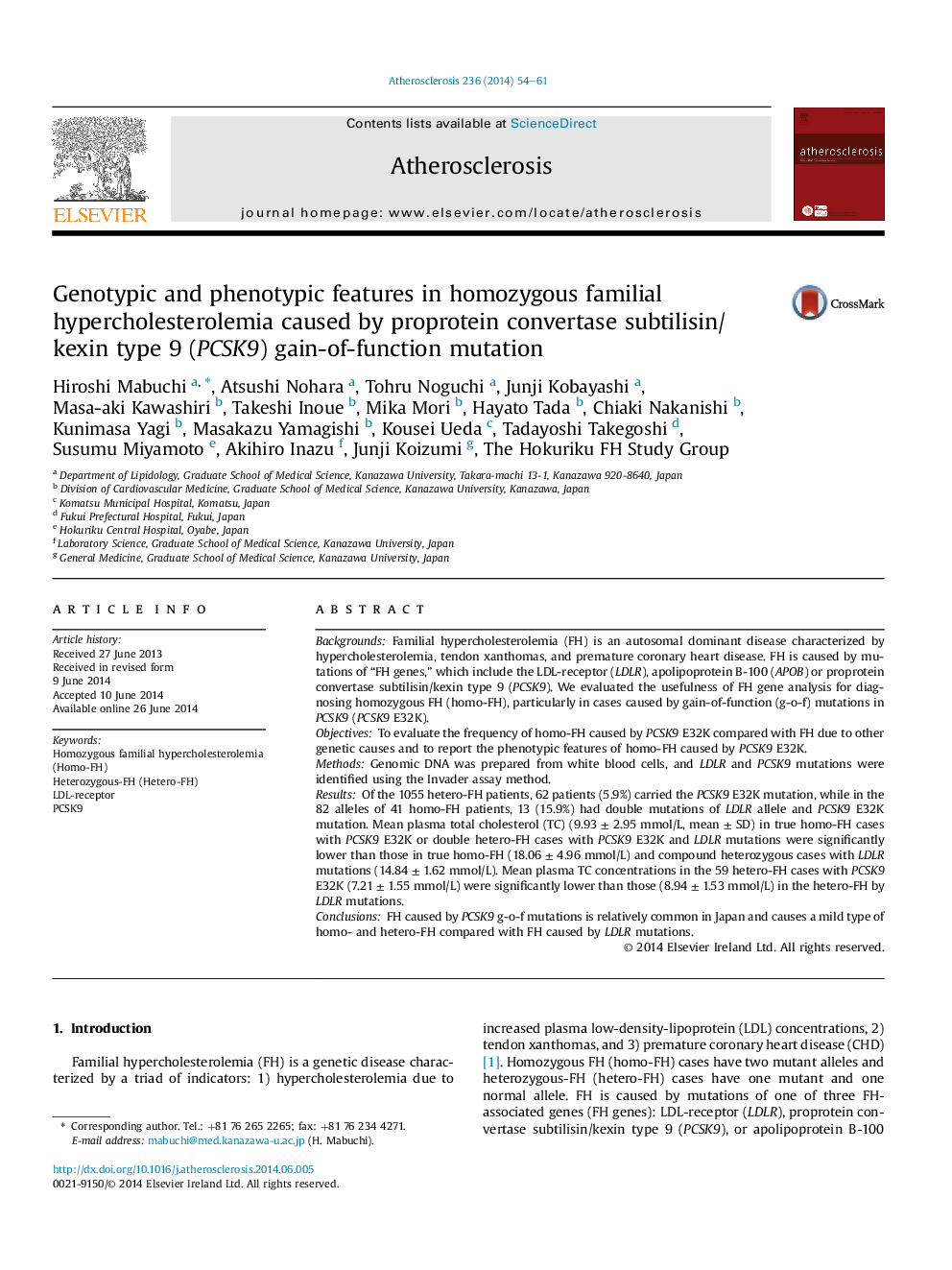| Article ID | Journal | Published Year | Pages | File Type |
|---|---|---|---|---|
| 5944852 | Atherosclerosis | 2014 | 8 Pages |
â¢Familial hypercholesterolemia (FH) is an autosomal dominant disease characterized by hypercholesterolemia, tendon xanthomas, and premature coronary heart disease.â¢FH is caused by mutations of “FH genes”, which include the LDL-receptor (LDLR), proprotein convertase subtilisin/kexin type 9 (PCSK9), or apolipoprotein B-100 (APOB).â¢We evaluated the usefulness of FH gene analysis for diagnosing homozygous FH (homo-FH), particularly in cases caused by gain-of-function (g-o-f) mutations in PCSK9 (PCSK9 E32K).â¢FH caused by PCSK9 g-o-f mutations is relatively common in Japan and causes a mild type of homo- and hetero-FH compared with FH caused by LDLR mutations.
BackgroundsFamilial hypercholesterolemia (FH) is an autosomal dominant disease characterized by hypercholesterolemia, tendon xanthomas, and premature coronary heart disease. FH is caused by mutations of “FH genes,” which include the LDL-receptor (LDLR), apolipoprotein B-100 (APOB) or proprotein convertase subtilisin/kexin type 9 (PCSK9). We evaluated the usefulness of FH gene analysis for diagnosing homozygous FH (homo-FH), particularly in cases caused by gain-of-function (g-o-f) mutations in PCSK9 (PCSK9 E32K).ObjectivesTo evaluate the frequency of homo-FH caused by PCSK9 E32K compared with FH due to other genetic causes and to report the phenotypic features of homo-FH caused by PCSK9 E32K.MethodsGenomic DNA was prepared from white blood cells, and LDLR and PCSK9 mutations were identified using the Invader assay method.ResultsOf the 1055 hetero-FH patients, 62 patients (5.9%) carried the PCSK9 E32K mutation, while in the 82 alleles of 41 homo-FH patients, 13 (15.9%) had double mutations of LDLR allele and PCSK9 E32K mutation. Mean plasma total cholesterol (TC) (9.93 ± 2.95 mmol/L, mean ± SD) in true homo-FH cases with PCSK9 E32K or double hetero-FH cases with PCSK9 E32K and LDLR mutations were significantly lower than those in true homo-FH (18.06 ± 4.96 mmol/L) and compound heterozygous cases with LDLR mutations (14.84 ± 1.62 mmol/L). Mean plasma TC concentrations in the 59 hetero-FH cases with PCSK9 E32K (7.21 ± 1.55 mmol/L) were significantly lower than those (8.94 ± 1.53 mmol/L) in the hetero-FH by LDLR mutations.ConclusionsFH caused by PCSK9 g-o-f mutations is relatively common in Japan and causes a mild type of homo- and hetero-FH compared with FH caused by LDLR mutations.
